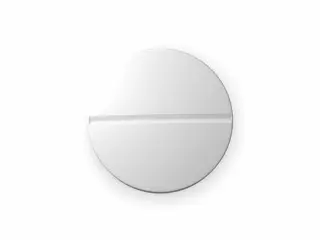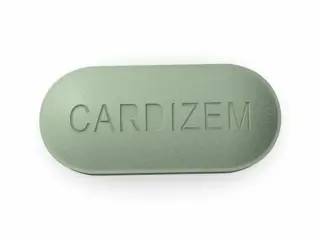Cardiovascular
Find a wide range of effective cardiovascular medications designed to support heart health, improve circulation, and manage blood pressure. Shop trusted brands and solutions to maintain a healthy cardiovascular system with confidence.
The cardiovascular category includes medications used to treat heart-related conditions. These drugs help manage blood pressure, prevent blood clots, regulate heart rhythms, and improve overall heart function. Many of these drugs are essential for patients with hypertension, arrhythmias, heart failure, and other cardiac diseases. Here is a review of some popular cardiovascular medications.
Altace (ramipril) is an ACE inhibitor. It helps relax blood vessels, lowering blood pressure. Altace is often prescribed for hypertension and to reduce the risk of heart attack and stroke. It is also useful in heart failure management. Common side effects include cough, dizziness, and fatigue. Altace is usually taken once daily and requires monitoring of kidney function and potassium levels.
Cardarone and Cordarone contain amiodarone. These medications are antiarrhythmics used to treat irregular heartbeats. They help restore normal heart rhythm and maintain it. Amiodarone is effective but has potential side effects, such as lung toxicity and thyroid problems, so careful medical supervision is necessary. It is prescribed for atrial fibrillation, ventricular tachycardia, and other severe cardiac arrhythmias.
Cardizem (diltiazem) is a calcium channel blocker. It works by relaxing blood vessels and slowing the heart rate. Cardizem is used to treat high blood pressure and angina. It can also help control certain types of irregular heartbeat. Side effects may include swelling, headache, and low blood pressure. It is often used when other blood pressure medications are not suitable.
Cartia XT is another form of diltiazem. It is a once-daily, extended-release pill. Cartia XT offers the same benefits as Cardizem but allows for simpler dosing. It helps with hypertension and angina. This formulation improves patient compliance due to its convenience.
Coumadin (warfarin) is a widely used anticoagulant. It prevents blood clot formation by thinning the blood. Coumadin is essential for patients with atrial fibrillation, heart valve replacements, and deep vein thrombosis. Regular blood tests are required to monitor the international normalized ratio (INR). Coumadin interacts with many foods and medications, so patients must follow their doctor's guidance closely.
Lanoxin (digoxin) strengthens heart contractions and controls heart rate. It is mainly prescribed in heart failure and certain arrhythmias like atrial fibrillation. Lanoxin can improve symptoms like fatigue and shortness of breath. Care must be taken to avoid toxicity, as its therapeutic window is narrow. Symptoms of toxicity include nausea, dizziness, and vision changes.
Lisinopril is another ACE inhibitor. It lowers blood pressure and protects the kidneys, especially in patients with diabetes. Lisinopril is popular due to its effectiveness in preventing strokes and heart attacks. Side effects are similar to Altace, including cough and increased potassium. It generally requires once-daily dosing.
Micardis (telmisartan) belongs to the angiotensin receptor blocker (ARB) class. It dilates blood vessels to lower blood pressure. Micardis is often an alternative for patients who develop cough on ACE inhibitors. It also provides kidney protection and reduces cardiovascular risk. Typical side effects are dizziness and fatigue.
Nimotop (nimodipine) is a calcium channel blocker primarily used to prevent brain damage after subarachnoid hemorrhage. It improves blood flow in the brain and reduces the risk of complications following bleeding. Nimotop is not commonly used for hypertension but is crucial in neurological care.
Plavix (clopidogrel) is an antiplatelet medication. It prevents platelets from clumping together, reducing blood clot risk. Plavix is prescribed after heart attacks, strokes, or stent placement. Unlike Coumadin, it does not require regular blood tests but still requires caution due to bleeding risk. Common side effects are bruising and minor bleeding.
Samsca (tolvaptan) is a vasopressin antagonist. It helps manage fluid overload by promoting water excretion without losing sodium. Samsca is used in patients with heart failure or hyponatremia caused by heart disease. Monitoring sodium levels is important during treatment.
In summary, the cardiovascular class of medications offers a broad spectrum of therapies. From blood pressure control with Altace, Lisinopril, and Micardis to rhythm management with Cardarone and Lanoxin, these drugs address different parts of heart health. Anticoagulants like Coumadin and antiplatelets like Plavix reduce clot risks, preventing strokes and heart attacks.
Each medication requires specific monitoring to ensure safety and effectiveness. Side effect profiles and drug interactions differ widely. Choosing the right drug depends on patient condition, other medical issues, and tolerance. Healthcare providers base prescriptions on individual risk factors and treatment goals.
Patients are advised to communicate regularly with their healthcare team. Following dosing instructions and attending scheduled checkups can prevent complications. Lifestyle changes combined with medication improve cardiovascular outcomes. Diet, exercise, and smoking cessation play a vital role alongside medication management.
Overall, cardiovascular drugs have advanced significantly. They provide life-saving benefits for millions worldwide. Proper use under medical supervision maximizes benefits and minimizes risks.














